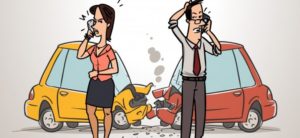WHY ARE TEENS AT SUCH HIGH RISK FOR DROWSY DRIVING?
It’s no secret that teens are at high risk for getting into car accidents, especially in the first few months after getting a driver’s license. In 2015, six teens at the age of 16-19 died every day in vehicle-related accidents. While not all of those accidents were related to drowsy driving, teens tend to underestimate the risk associated with many driving situations, including the dangerous effects of sleep deprivation.
Teens and Sleep Deprivation
Teens, unlike adults who need seven to eight hours, require a full nine hours of sleep to function at peak efficiency. However, many teens get far less than the recommended hours due to a lot of factors. The circadian rhythms of the adolescent body shift. Rather than getting tired around 9 pm, most teens don’t start to feel sleepy until 11 pm. This shift, along with the early start times of many high schools, puts many teens on the road with some level of sleep deprivation.
For a free legal consultation, call (725) 900-9000
Teens often underestimate the dangers involved with any driving situation, including drowsy driving. As a whole, teen drivers tend to drive faster and leave little space between their vehicle and the car in front of them, yet they have similar reaction times to adults but less driving experience. Teens are also less likely to wear seatbelts, which increases the risk of injury in the event of an accident.
This age group is susceptible to the effects of sleep deprivation just as any other demographics. When the body gets less than the recommended hours of sleep, the brain starts to function at a slower rate. Slowed thinking leads to a decrease in reaction times, reasoning ability, and problem-solving skills. The combination of teen inexperience and overestimation of their driving skills along with the impaired thinking that comes with sleep deprivation make drowsy teens a danger to themselves and others while on the road.
Drowsy Driving Prevention
Drowsy driving prevention begins with a good night’s rest, which starts long before lying down in bed. Teens not only need to be reminded of safe driving habits like wearing a seatbelt and not driving with other teens in the car, but also need to develop good sleep hygiene.
- Check the Mattress: An old, lumpy mattress may not allow teens to get a good night’s rest even when they do spend nine hours in bed. Along with a comfortable mattress, the room should be kept dark, quiet, and at a comfortably cool 60-68 degrees.
- Avoid Stimulants: The caffeine found in soda, coffee, and energy drinks can keep teens buzzing for hours. Drinks and food with high levels of caffeine should be avoided at least four hours before bedtime.
- Firm Rules About Driving Safety: Teens need to be reminded of safe driving rules. Wearing a seatbelt and driving the speed limit can help teens to stay safe and make better driving decisions.
- Turn Off the Screens: Teens are constantly connected through smartphones and laptops. The bright light from these screens may be keeping them up long past a reasonable bedtime because they make the brain believe it’s daylight and time to stay awake. Shut screens down an hour before bed to give the brain enough time to settle down for the night.
No obligation consultations are always free.
Let Us Help You! Call Now: (725) 900-9000



